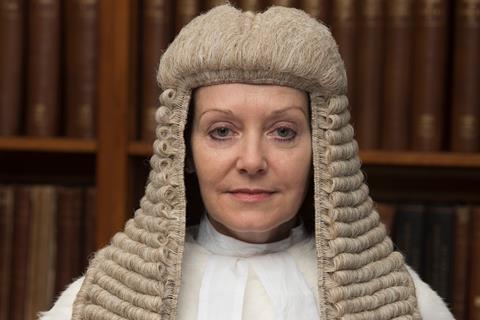Global mining giant BHP Group is to face a multi-billion-pound lawsuit in London brought by 200,000 Brazilians over a dam collapse that led to Brazil’s worst environmental disaster.
An eight-week trial has been listed for April 2024 following a High Court ruling that ‘there is a compelling argument that the court should set a date and estimate for the first trial of liability so as to avoid further delay’.
The Fundão dam, in Minas Gerais, Brazil, collapsed in November 2015 releasing some 40 million cubic metres of tailings from iron ore mining. The collapse and flood killed 19 people, destroyed entire villages and had a ‘widespread impact’ on individuals and communities, the claimants say.
Toxic mining waste also swept into the River Doce, which acted as a main water supply for more than 250,000 people, and reached the Atlantic Ocean, more than 400 miles away.
Claimants in the group action, one of the largest in English history, include 200,000 individuals, 530 businesses, 15 churches and faith-based institutions, 25 municipalities, five utility companies and members of the Krenak indigenous community.

The dam was owned and operated by Samarco Mineração, a joint venture between BHP and Brazilian iron ore mining company Vale. BHP’s liabilities in the class action were previously estimated at £5bn in 2018.
In Município De Mariana v BHP Group (UK) Limited & Anor, Mrs Justice O’Farrell said: ‘Although pleadings have not yet closed, and the register of claimants has not yet been finalised, the pleaded issues between the parties are sufficiently clear so as to identify key threshold liability issues that the court will be required to determine.’
She added: ‘Although the precise list of issues may be in a state of flux and subject to further discussion and revision between the parties, there is a measure of agreement that there should be a staged trial, the first staged trial should address liability issues, and that trial should encompass threshold liability issues. That is sufficient to allow the court to fix a trial date, so as to secure court time and resources.’
The judgment determined that ‘the final scope of the issues and timetable to trial’, if not agreed, could be dealt with at an earlier hearing.
O’Farrell said: ‘Finally, these proceedings are getting a bit stale. I do not consider that it would be helpful to attempt to apportion blame for the delay. Indeed, given the scale and nature of the litigation, it is not surprising that there have been challenges, appeals and changes to the claims. However, it is now time to avoid further delay and make substantive progress in determining the dispute.’
Tom Goodhead, managing partner of Pogust Goodhead, who leads the claimants’ case, said: 'BHP’s shareholders should be appalled to know that as a result of BHP’s consistent failure to provide full and fair redress to my clients, BHP’s liabilities have now doubled to over £10bn and interest on that amount continues to compound at 1% per month pursuant to Brazilian law.
'Having committed ecocide through their negligent conduct prior to the collapse of the dam in November 2015, BHP continues to destroy shareholder value in the way it conducts this litigation; as well as prolonging the misery of hundreds of thousands of my clients.'
In a statement, BHP said the judgment was a procedural decision that relates to the next steps in this phase of the court process and establishing who the claimants in the UK action are. It does not relate to the merits of the UK action.
It added that BHP denies the claims in their entirety and will continue to defend the UK action. 'BHP also believes that the UK action remains unnecessary as it duplicates matters already covered by the existing and ongoing work of the Renova Foundation (under the supervision of the Brazilian courts) and other legal proceedings in Brazil.'
This article is now closed for comment.



























6 Readers' comments